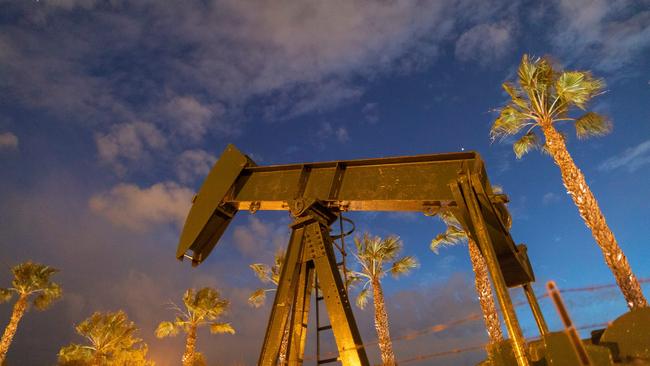Crude oil’s price plunge will leave scars

“Unprecedented” feels like a tired word these days, but it is no overstatement when it comes to the oil market.
On Monday, prices on the expiring May futures contract for US benchmark crude were merely at their lowest this century. Some local spot prices were in the single digits. By Tuesday morning, though, it was clear that things were getting out of hand as futures prices fell to $US10 and then $US5 and then pennies and finally turned negative for the first time in history.
While motorists won’t be paid to fill up their tanks and the new front-month contract is trading normally, there was a dual breakdown — physical and financial — that will leave scars.
Despite the international deal to sharply restrict output reached just over a week ago, it was too little, too late to help the bottom lines of US oil producers. The crucial background is that until four years ago there was virtually no US crude oil being exported abroad. Infrastructure for storage and transportation has struggled to catch up with the shale boom’s transformation of the US into the world’s top petroleum producer. With the world recently overproducing by some 20 million barrels a day, there were still some places to send and store oil on other continents, but precious few in or near the US.
Compared with its creaky infrastructure, the deep and sophisticated US financial market seemed better prepared for a shock, and that made Monday night’s $US55 drop in the price of an expiring contract so jarring. Commodity futures need to be standardised and tied to a physical delivery point, which in this case was overwhelmed. The consequences will be thorny for traders who had never seen the need to put a minus sign into their risk-management models.
They also will be severe for domestic producers and shippers of oil. In the past, price busts made it financially unpalatable for some high-cost producers to keep pumping, but now many will be forced to temporarily shut productive wells that still covered their cash costs. Tellingly, one of the few North American energy companies to do well on Monday night was Cabot Oil & Gas, a major natural-gas producer. US oil drillers that also produce associated gas will be forced to stop, easing a gas glut along the way.
That would make pure-play gas producers one of the few winners on a crazy day.
The Wall Street Journal


